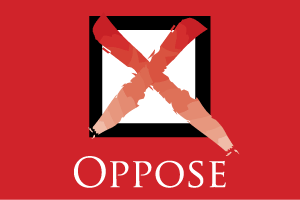 A California Chamber of Commerce-opposed bill that creates additional burdens and costs on the lodging industry, which was disproportionately impacted by the state shutdowns during the pandemic, recently passed a Senate policy committee after only minor amendments were made.
A California Chamber of Commerce-opposed bill that creates additional burdens and costs on the lodging industry, which was disproportionately impacted by the state shutdowns during the pandemic, recently passed a Senate policy committee after only minor amendments were made.
AB 1074 (Lorena Gonzalez; D-San Diego) extends the provisions of the Displaced Janitor Opportunity Act to nearly every service a hotel contracts for, making it difficult for hotels to change contractors or attract new contractors. It would apply to hotels and bed and breakfasts of all sizes.
What is the Displaced Janitor Opportunity Act?
The Displaced Janitor Opportunity Act was enacted 20 years ago as a response to the underground janitorial industry. Under the Act, any time there is a change in a contract for janitorial or building maintenance services, the new contractor is then required to hire all the former contractor’s employees for a period of 60 days. If the employees’ performance is deemed “satisfactory,” which is a low standard, the contractor is required to permanently retain all of those employees. A new contractor that does not retain the former contractor’s employees can be sued in court.
Under AB 1074, hotels will have a difficult time changing or attracting contractors for hotel services because the new contractor would be required to hire all the former contractor’s employees, even if it cannot afford to do so or even if doing so will require the contractor to displace its existing employees. The term “guest services” is broadly defined as “front desk, bell, in-house mail delivery, telephone operation, concierge, spa, valet, maintenance, landscaping, housekeeping, laundry, room services, and other turndown services.” Already recognizing nearly every service a hotel provides, guest services also vaguely includes “substantially similar” services to those listed above. Undefined, “substantially similar” can be inferred in a variety of ways that may fail to keep provisions consistent throughout the state.
In addition, the Act states that the contractor must have 25 or more employees, but there is no limitation under the hotel size, and whether all the employees need to work at the same location. Furthermore, an employee must work 15 hours per week for this Act to apply to them, but it is unclear whether all those hours must be performed at the same location. An employee who works 18 hours at Hotel A and 2 hours at Hotel B would still potentially be covered by AB 1074 at Hotel B, even with only working 2 hours a week at that location.
Wrong Time to Regulate
California’s hotel industry has already been greatly impacted due to the pandemic with more than 20% of hotels suffering closures, and upwards of 122,000 employees laid off. It is not the time to subject the already-decimated hotel industry to more regulation in a critical time of revival.
The author’s justification for AB 1074 is that it is a response to the COVID-19 pandemic. However, the bill is not limited to the pandemic. It also is important to note that a similar bill with a right to recall mandate, AB 3216 (Kalra; D-San Jose), a 2020 CalChamber job killer, was vetoed by Governor Gavin Newsom just last year during the height of COVID-19. It was vetoed out of concern that the bill was not limited to COVID-19, and that the hospitality industry had been one of the hardest hit by the pandemic. Newsom stated in his veto message that AB 3216 would place “too onerous a burden on employers navigating these tough challenges.” The right to recall mandate eventually was slipped into the 2021 budget, but only after being narrowed to relate directly to COVID-19.
AB 1074 originally contained a right to recall mandate and was tagged as a job killer. When April 19, 2021 amendments eliminated COVID-19 related recall provisions from AB 1074, the CalChamber removed the job killer tag, but remains opposed because of the harm the bill will do to the lodging industry.
Looking Forward
The hotel industry is still navigating tough challenges the pandemic has brought as well as the local and state right to recall mandates that were enacted recently. Now is not the time to pile on another new, broad mandate with no limitations.
AB 1074 will delay hotel employers’ ability to navigate reopening after forced closures and reduced operations in response to COVID-19. Increased costs will cause difficulty for hotels and bed and breakfasts of all sizes to secure necessary service contracts to maintain operations. The CalChamber and other groups oppose AB 1074 due to the negative impact it will have on the struggling hotel industry.
AB 1074 was approved by the Senate Labor, Public Employment and Retirement Committee and will be considered by the Senate Appropriations Committee when legislators return from summer recess in August.
Staff Contact: Ashley Hoffman

